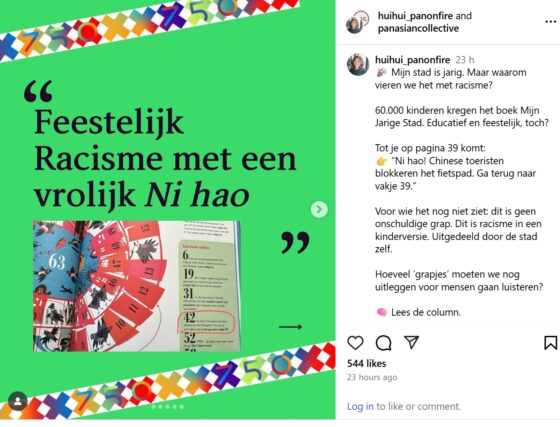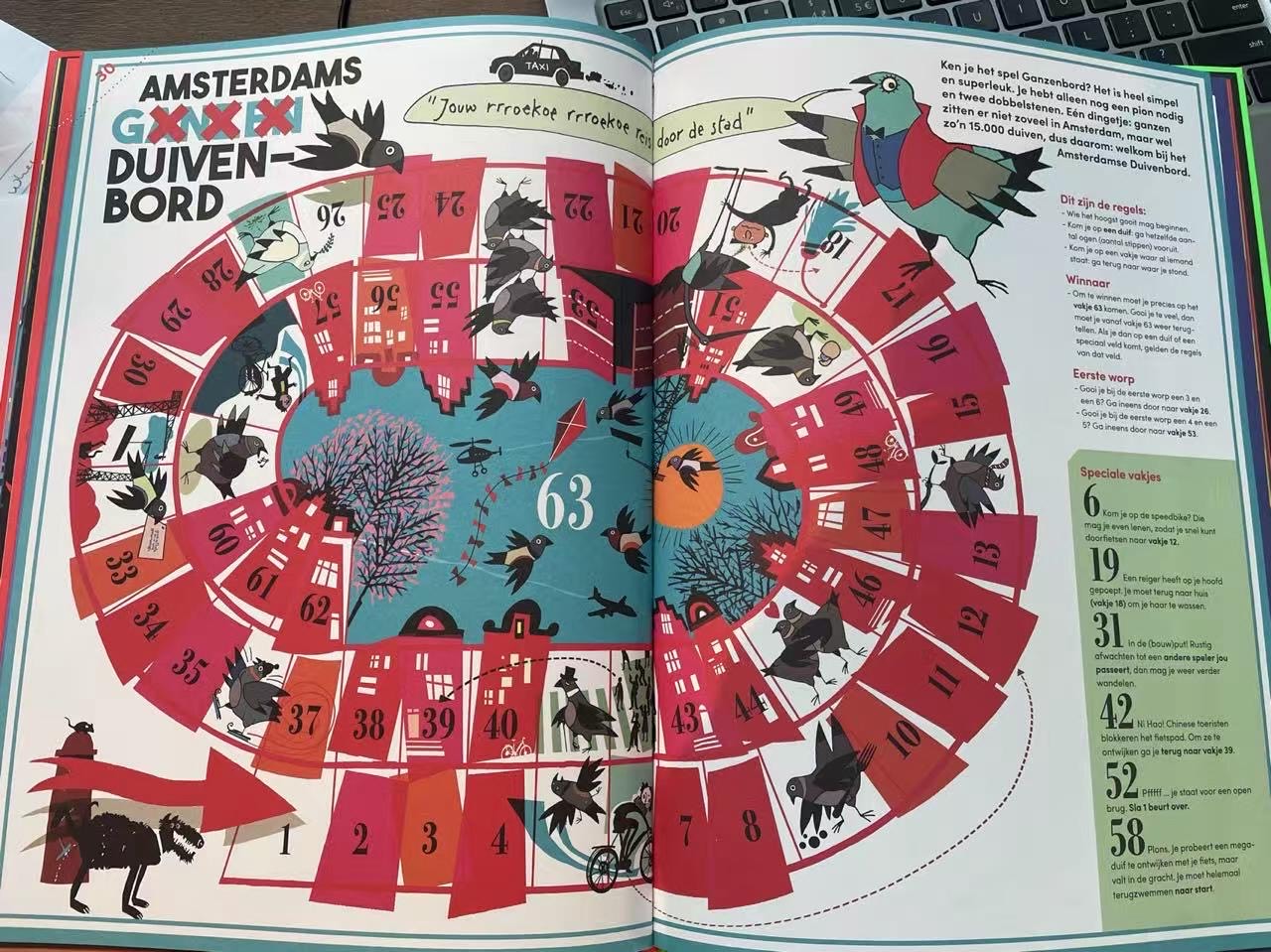It was intended as a celebration of 750 years of Amsterdam’s existence as a city. But a councillor and campaign group have complained that educational material distributed to schoolchildren for the city’s birthday includes a racist game.
A “Duivenbord” traditional board game produced for young Amsterdammers to learn more about the Dutch capital contains a square which some members of the Dutch Asian community believe promotes negative racial stereotypes. “Ni hao! Chinese tourists are blocking the cycle lane. To get around them, go back to square 39,” the board game reads.
The Pan Asian Collective and its founder, diversity campaigner Hui-Hui Pan, have protested on social media that the game is “racism in a children’s version, distributed by the city itself.”
“Festive racism”
In a LinkedIn post, Pan called the game “festive racism, with a cheerful Ni hao!” – which means ‘you good’ and is used as a common greeting in Mandarin. She said that her three children, like other primary school children in the city, were given a book called ‘My Birthday City’ after a visit to the city’s archives.
However, she said that what might appear to be a joke to many people was for her a slap in the face. “This is not an innocent little sentence,” she wrote. “This is racism in the language of children, stereotypes packaged up as a game, and given out by the city itself to tens of thousands of children.”
She said that she had been informed by the publisher that it was not intended to be discriminatory. “But that is precisely the problem. It is never intended as racism. And yet it happens, time and time again, and time and time again it is brushed under the carpet because it is supposedly funny…But what it teaches children is that Asians are not really people but stereotypes… and that you can dismiss us as nuisance.”


Negative stereotypes
Sheher Khan, leader of the Amsterdam Denk party, has submitted formal questions to the city executive, saying that the image “confirms and enforces negative stereotypes about people with an Asian origin”. He wrote: “Because it is contained in educational material – aimed at primary schoolchildren – this caricature is normalised and presented to a new generation….while in education there is actually a responsibility to raise children as citizens of the world who can develop empathy, inclusivity and critical thinking.”
The Pan Asian Collective organised a demonstration during the Covid pandemic, concerned about a rise in anti-Asian discrimination. In 2020, 3,000 people complained to the national anti-discrimination monitoring point about a song played by DJ Lez Gaarthuis entitled “Prevention is better than Chinese” – a weak rhyme with the Dutch for “a cure”. A study commissioned by the Dutch government last year found that half of Dutch people of Chinese background experienced discrimination.
A separate report by Amsterdam municipality last year revealed that discriminatory practices were apparently commonplace: 60% of employees with a non-European background or practical educational level said they had experienced bullying, humiliation or exclusion at work there in the past year.
